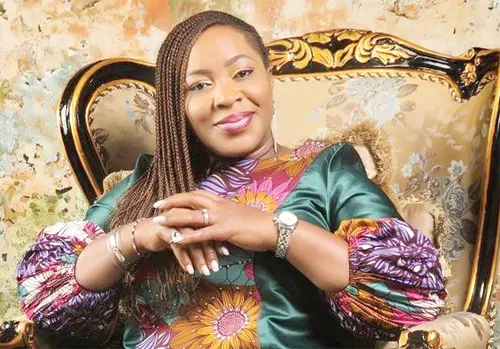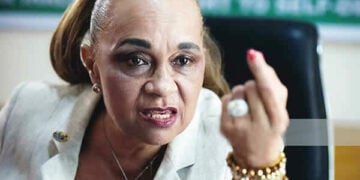Given the recurring setbacks despite global and regional commitments like the Beijing Declaration and AU protocols do you think Nigeria has failed its constitutional obligation to ensure gender equity?
Yes, I believe Nigeria has fallen short. Despite being a signatory to global and regional frameworks like the Beijing Declaration and AU protocols, our actions have not matched our commitments. The truth is, we operate in a deeply patriarchal society, where many still believe a woman’s place is in the home, not in leadership. This mindset, especially prevalent in parts of the country, has blocked real progress.
Economic exclusion is another barrier as politics in Nigeria is capital intensive, and most women simply don’t have the financial power to compete. On top of that, there’s the reality of political violence, harassment, and the double standards women face when they do step forward. So yes, despite all the advocacy, our system has continued to exclude women. Until we implement structural reforms like reserved seats, we’ll keep failing to meet both our constitutional and international obligations on gender equity.
What specific ways could the Women’s Reserved Seats Bill improve the inclusiveness and credibility of Nigeria’s democratic system?
The bill would significantly enhance the legitimacy of our democracy by aligning representation more closely with our population nearly half of which is female. It would greatly improve the legitimacy of our democracy by making it more representative of Nigeria’s actual population, estimated to be about 51 per cent male and 49 per cent female. Democracy should reflect the people it serves, and right now, women’s voices are largely missing from the legislative space.
With more women in the National Assembly, we’d see more attention to issues that directly impact women such as reproductive health, gender-based violence, and economic inclusion. For example, recent debates around the cost of sanitary products lacked a strong female perspective. Greater representation would also bring broader social benefits, as women often advocate not only for themselves but also for children and families.
Ultimately, when policies reflect the lived realities of all citizens , not just one gender, democracy becomes more meaningful, responsive, and credible.
Realistically, can Nigerian women gain fair political ground without institutional interventions like reserved seats?
Not yet, and that’s the reality we must confront. The structural barriers facing women in politics, from financial exclusion to deeply ingrained gender bias, mean they aren’t starting from an equal playing field. Reserved seats aren’t a handout, they’re a necessary boost to help level the field.
Even the current proposed numbers aren’t perfect, but they’re a critical starting point. We’ve seen in other African countries where gender representation is structurally balanced that it leads to stronger, more inclusive governance. We’re not asking for a 50-50 split, just a fair share.
Women will rise to the challenge, prove their capacity, and gradually build trust across the system. With time, that trust will bring more support from both male allies and the broader public.
What would be the broader political and economic impact of adding 74 reserved seats in the National Assembly and over 160 in state assemblies?
It would be transformative. We’ve never had this level of female representation in Nigerian politics. While women make up nearly half the population, they’re largely absent from legislative decision-making. This bill offers a starting point to correct that imbalance.
Though not yet proportional, these seats would amplify women’s voices on issues that directly affect them like maternal health, education, and gender-based violence. It also has economic implications. Research shows women power the majority of Nigeria’s small businesses, yet they remain politically invisible. With more women in office, policies can better support that sector, boosting household incomes and contributing to national growth.
Ultimately, this shift wouldn’t just empower women it would strengthen governance and drive inclusive development across the board.
Some argue that creating new seats will worsen Nigeria’s already high cost of governance. Is that a valid concern, and how do you balance inclusion with fiscal responsibility?
It’s a fair concern I’ve consistently spoken against the bloated cost of governance. But inclusion shouldn’t be sacrificed in the name of austerity. Women make up nearly half the population, yet remain grossly underrepresented in politics. That’s not just undemocratic, it’s economically unwise.
More women in office means better policies for sectors they already lead, especially small-scale businesses, which are largely powered by women. Supporting that sector can help stimulate growth and, in turn, offset some of the governance costs.
So yes, we should cut waste, but not at the expense of equity. The reserved seats are a strategic investment in better governance and long-term national development.
Do you believe political parties are truly prepared to implement and uphold the Women’s Reserved Seats Bill?
From my time as secretary general of IPAC, I witnessed strong party-level commitment, over 90 political party leaders signed a joint declaration supporting women’s inclusion during a national conference. So on paper, the will exists.
However, Nigerian politics is often about finding loopholes. That’s why the bill must include enforceable provisions compelling parties to comply through primaries, appointments, or consensus.
Each party must be legally obligated to present competent women candidates. Without those safeguards, even the best-intentioned policies risk being undermined.
Should these reserved seats be a permanent fixture, or reviewed after some time?
Both. They should be permanent in principle not something to withdraw just because short-term expectations aren’t met. Real change takes time. At the same time, periodic reviews are necessary to track progress and make adjustments.
That said, I believe results will speak for themselves. We’ve already seen examples like Senator Natasha where strong female leadership is embraced by the public. Nigerians value good governance, and once more women prove their capacity, continued support will follow. If anything, a review might show the need to expand, not reduce, these seats.
Will this spark wider reforms beyond gender?
I hope it will. I hope it does. I really hope it does, because the young people, the younger generation, there’s so much they have on their hands. They have so much. So much. And I think as a country we are depriving ourselves of a lot by not having them included in governance. Yes, there has to be a learning period, but when you haven’t given them the opportunity to learn, we’re locking them out completely. And that is a great disadvantage to us as a nation. A great disadvantage to us as a nation. So I’m hoping if this goes through, it will spur the same for young people. I do believe that this bill also takes care of people with disabilities, the PWDs. I’m not sure, but I think they’re included as well in this bill that’s been presented to the House.
The kind of public awareness or civic education needed to support the bill’s passage and implementation
How should women prepare to take advantage of these reserved seats, legally, politically and socially?
Women are prepared. Across the country, the Women in Politics Forum has been having training sessions for younger women. We have the Women in Politics Forum. We have different associations that have been supporting women in politics. The UN Women, the Women’s Trust Forum, a lot of associations are in the background having training sessions after training sessions for these women to prepare them for when this bill becomes law. So a lot of work is going on in the background. Women are being trained on politics and that includes legal and social training as well. Their role as women in politics, their role as representatives of women, their role as representatives of their constituencies, their role as young people. A lot of training is going on in the background. They’re preparing, I assure you.






